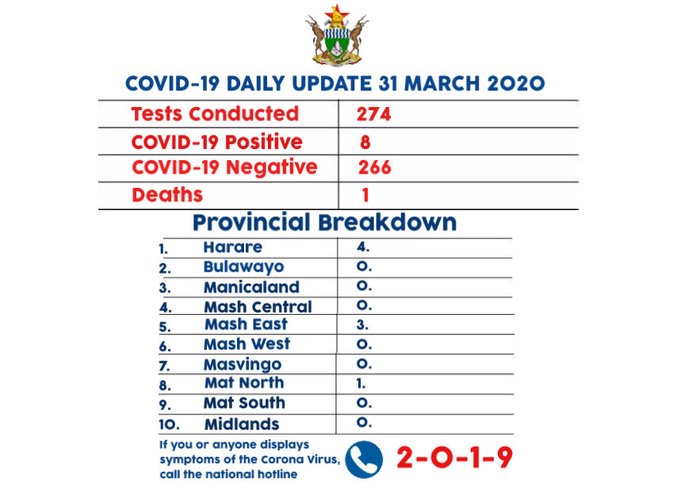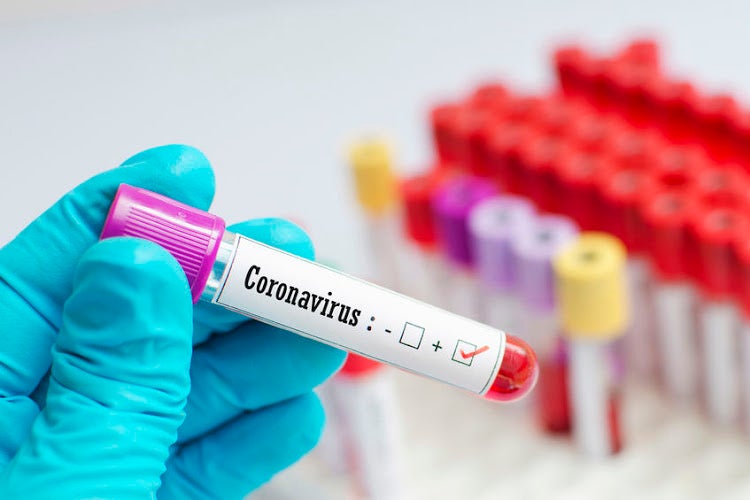The Zimbabwe Association of Doctors for Human Rights (ZADHR) has expressed concern over the small number of the Coronavirus diagnostic tests that have been conducted in the country so far.
This has necessitated calls to the Ministry of Health and Child Care to increase the testing samples for COVID-19 and decentralise testing sites in all the country’s provinces.
As of March 31, 2020, the country has carried out 274 tests, of which eight have been positive.
One case was reported in Victoria Falls, four in Harare and three are from Mashonaland East.
Of the eight confirmed cases, four were imported while the other four are as a result of local transmission.

ZADHR, which has continuously monitored the coronavirus pandemic and national response in Zimbabwe, called on authorities to roll out mass screening and testing during the lockdown period.
“ZADHR notes with great concern the small number of COVID-19 diagnostic tests that have been conducted in Zimbabwe. We urge the Zimbabwean government to urgently roll out a mass screening and testing programme during this twenty-one-day lockdown period and beyond,” said the doctors in a statement.
The human rights doctors said testing more people allowed “for early identification, isolation and treatment of COVID-19 and avert the possible catastrophic effects of community transmission.”
Currently, testing for COVID-19 is done at the National Microbiology Reference Laboratory at Sally Mugabe Central Hospital in Harare with confirmatory tests being taken to South Africa’s National Institute for Communicable Diseases (NICD).
While announcing the 21-day national lockdown last Friday, President Mnangagwa said to contain the spread of COVID-19, testing would be decentralised to provincial hubs countrywide to expedite testing and diagnostic services.
Meanwhile, ZADHR welcomed the national lockdown that took effect on March 30, 2020, and advised citizens to adhere to it as it was “the best weapon to combat the coronavirus in Zimbabwe.”
“Social distancing breaks the human to human transmission cycle, allows infected individuals to be identified before they pass the infection across households, towns and cities. However, we call upon the state to make sure the enforcement of the national lockdown in a manner that respects the rights of all citizens. The security forces must have adequate protective equipment and must be cautioned on violating the rights of citizens,” said the doctors
The doctors also called upon the government to make sure all returning residents into Zimbabwe were provided with state-monitored isolation facilities where they are assessed for 14 days.
“The current approach by the Ministry of Health and Child Care where they encourage self-isolation for returning residents is porous, lacks monitoring, and is a potential avenue for COVID-19 importation into Zimbabwe.
“The state must be proactive than reactive in ensuring COVID 19 cases are identified at the ports of entry as compared to picking symptomatic patients in the community,” ZADHR said.
Besides doctors, citizens have urged the government to be transparent in the representation of the country’s state of preparedness by the health ministry and other government officials, saying they must address concerns raised by public nurses and doctors on the absence of Personal Protective Equipment (PPEs).

